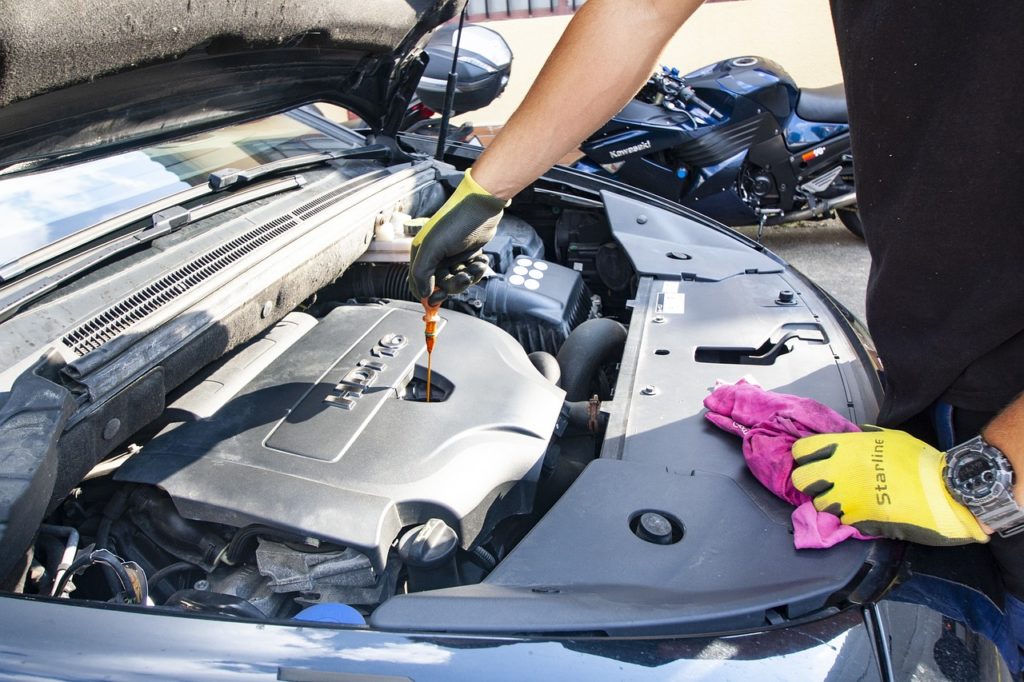Table of Contents
Maintaining a proper car maintenance schedule from the moment you drive it off the lot is important for its performance, safety, and longevity. The early stages of ownership are key for setting a solid foundation with simple yet essential tasks like oil changes and tire rotations. As we explore what your vehicle needs from 0 to 60,000 miles, we’ll focus on these foundational practices as well as more detailed maintenance that becomes necessary as your mileage increases.
Routine Car Maintenance: 0–30,000 miles
In the initial 30,000 miles of vehicle ownership, adhering to a regular car maintenance schedule is important for preserving your car’s efficiency, safety, and longevity. Typically, an oil change is advised every 5,000 miles. This routine procedure helps extend the engine’s life and ensures optimal performance. Opting for synthetic oil could be beneficial since it generally allows for more mileage between changes compared to conventional motor oils. Alongside, it’s important to change the oil filter to maintain oil purity and engine health.
Tire rotation is another key maintenance task and should be performed every 6,000 to 8,000 miles. This practice promotes even tire wear, thereby extending tire life and maintaining consistent vehicle handling. Paying attention to the engine air filter around the 15,000-mile mark is also essential. A clean air filter ensures that your engine “breathes” correctly, which is critical for maintaining proper fuel combustion and engine efficiency. A clogged air filter can lead to reduced performance and increased fuel consumption, highlighting its importance in early vehicle maintenance. By following these essential maintenance practices within the first 30,000 miles, car owners can significantly improve their vehicle’s reliability and overall health, setting a strong foundation for the miles ahead.
Routine Car Maintenance: 30,000–60,000 miles
As your vehicle journeys beyond the 30,000-mile marker to hit the 60,000-mile threshold, maintaining its performance becomes crucial. Once you’ve passed the 30,000-mile point, a more detailed inspection and replacement schedule comes into play to ensure your vehicle’s longevity and efficiency. This bracket primarily focuses on brake fluid changes and a thorough inspection of cooling systems, vital in preventing overheating and ensuring your vehicle’s ability to stop effectively—a cornerstone of both safety and performance.
Typically, brake fluid needs a replacement anywhere between 20,000 to 45,000 miles depending on your vehicle’s specific requirements as outlined in your owner’s manual. This period is an opportunity to check for any leaks or damages within the coolant system, highlighting the importance of a full coolant system flush at around 60,000 miles to prevent engine damage from overheating.
By the time the odometer reaches the 50,000-mile mark, attention shifts to components that bear the brunt of daily use:
- Brake pads
- Fuel filters
- Transmission fluid and filter
With regular use, brake pads tend to wear, requiring a replacement to maintain braking efficiency and safety on the road. A new fuel filter ensures that your engine remains unclogged and free of debris, ensuring smooth operation—a preventative measure against rough running or potential engine failure. Replacing the automatic transmission fluid and filters at 50,000 miles helps prevent shifting issues and gear transmission failures. By following these vehicle maintenance principles from 30,000 to 60,000 miles, car owners can help ensure a smooth transition into high-mileage territory, maintaining their vehicle’s health and performance.
Adhering to a structured maintenance schedule from the start can significantly impact your vehicle’s reliability and overall health in the long run. By paying close attention to both basic and comprehensive care requirements over time, car owners can ensure their vehicles remain reliable on the road. This approach not only helps in avoiding costly repairs but also contributes to a safer driving experience for everyone involved.
Contact Us To Keep Up With Your Car Maintenance Schedule
Need help setting up a routine car maintenance schedule to keep your vehicle running smoothly? Look no further than A1 Quality Repair. Our team of automotive experts is here to provide you with personalized advice and guidance tailored to your vehicle’s needs. Whether you’re looking to stay on top of oil changes, tire rotations, or other vital maintenance tasks, we’ve got you covered. Feel free to reach out to us with any questions or to schedule a consultation.
